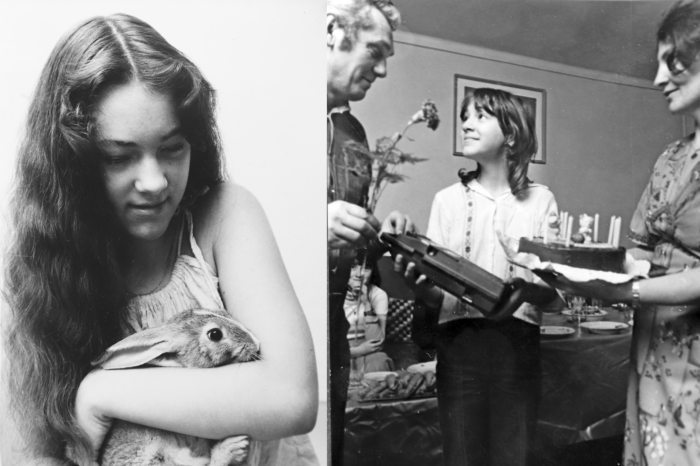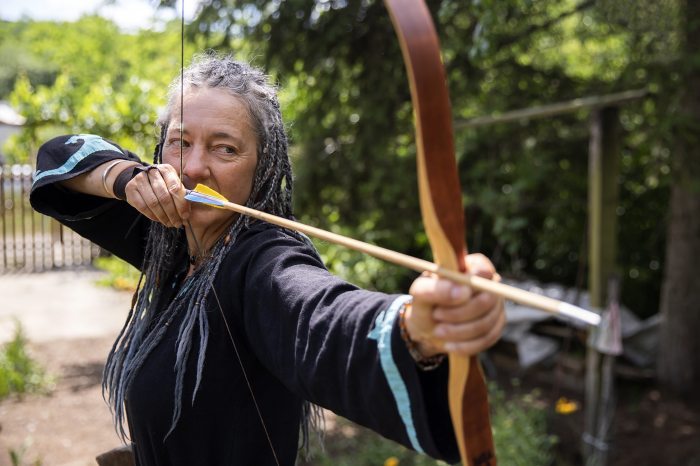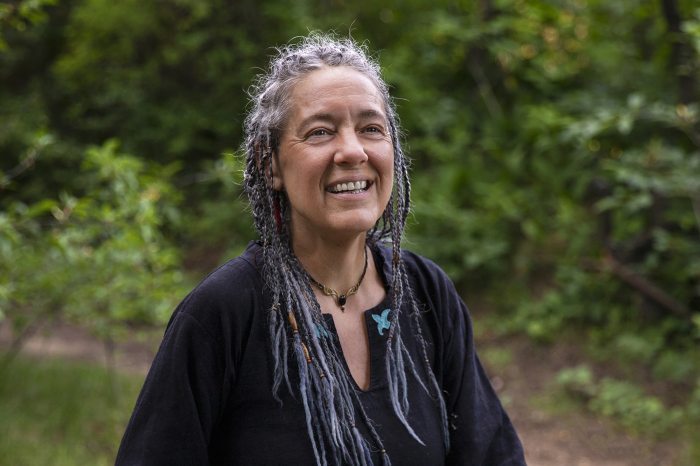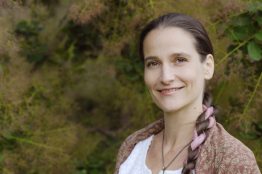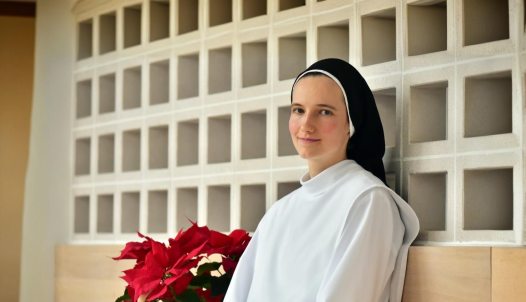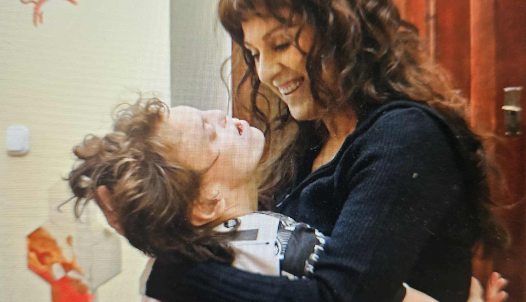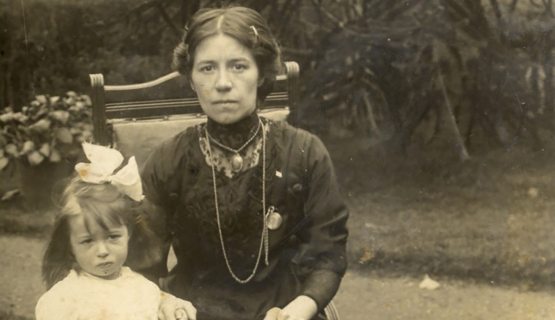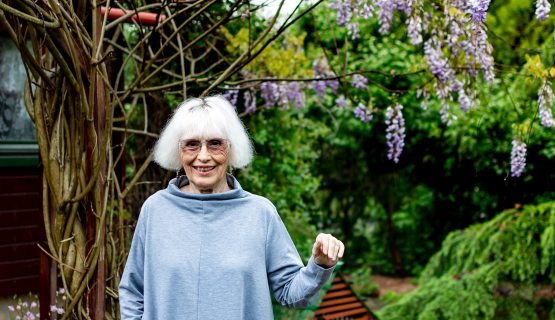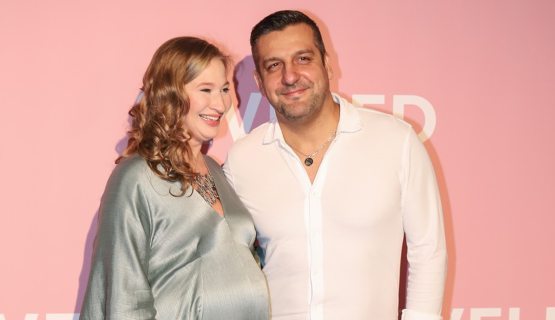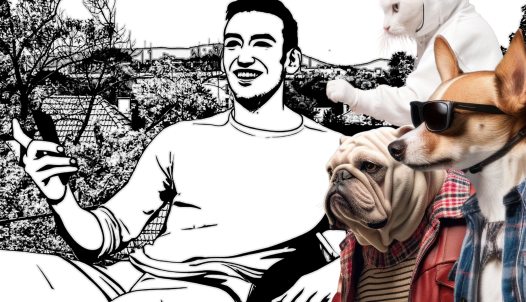I will tell you my story - How would I live if I had only this one life?
Do you feel like you cannot find your way, this is not how you want to live? That you could do more and better? A woman living a wild life who once was the expert of self-flagellation. Approaching fifty, she finally understood the reasons and she got to understand herself. She stood by all she believed in and moved out of an over-civilized society. This is the story of Kira Krisztina Ványa.
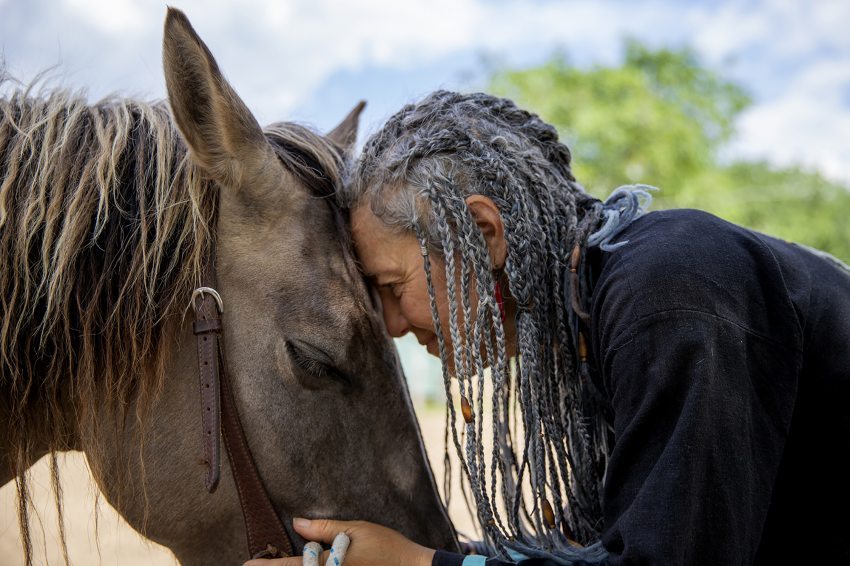
Do you feel like you are not finding your way, that this is not how you want to live? That you could do more and better? I'm an expert on self-flagellation. An expert on feeling 'I'm not good enough, a feeling that will ruin your whole day. 'I had dreams. I dreamt that my daughter would be perfect' I started my life with my mother's expectations like that. And, of course, it's not hard to guess: I have not been perfect. Especially not in my mother's eyes. We were like fire and water. She expected something else from me and I expected something else from her. It was rare that we ever reached each other's hearts. She was a successful photojournalist. She was born in a small village in Transylvania and managed to end up working for the MTI (a Hungarian news agency). Seemingly, she had everything. However, she could not be happy or at least content. She was 'wounded' as a little girl and she could not get over those wounds. She became an addict.
We lived in the first district of Budapest, in a one-and-half-room flat of a condominium where the window faced the crumbling walls of the house on the other side of the street. I felt like little Maugli in the concrete jungle, like fish out of water, choking. I was always yearning for the summertime. Looking back, I was only truly happy during the summers; we spent them either with the relatives of my mother in Transylvania or with the parents of my father in Tiszacsege, on the Great Plain. I fell in love with horses in Transylvania. I was running up and down barefoot around them in the barn, I hugged and petted them passionately. On one occasion, my mother ran out of the house shouting 'Oh, my God, my brother's just told me you were playing behind a kicker. Get out of there, Krisztike, you might get hurt.'
But I felt no fear when I was with horses. We understood each other; their big, warm, clever, and wondering eyes brought peace to my upset and unappreciated little soul.
Driven by my love towards horses, I planned to become a vet but then I felt like I wasn't clever enough for that. And no one encouraged me. My mother took me to the career advisors and so I started my studies in Tata, in a horse breeding trade school but the education there was quite disappointing.
My father didn't mind, he always let me make my own decisions; he trusted me. He didn't mind what I wanted to do, he just wanted me to like what I was doing. He didn't expect me to be extraordinary. He was happy as long as I didn't fail my studies. He taught me completely different things. I was about 5 or 6 when he took a simple white piece of paper and drew random lines on it and then we coloured these polygons. There was no point in doing this other than spending quality, loving time together. He taught me the joy of being together, and also some DIY stuff. He's the one who taught me how to chop firewood, make fire, how to find my way around the toolshed - actually, I built the chicken coop in the garden with my own two hands. He was my hero. If it wasn't for him, I wouldn't be here today.
In 1983 when I was 18, I asked a psychologist for help after struggling with the eating disorder bulimia for 2 years. I didn't know I had a condition but I did feel that I bottled up a lot of feelings. I felt anxious from sunrise to dawn.
I realized that I had to do something when on a stuffy summer day I came across the July edition of the Családi Lap ("Family Journal"). In an article, Gabriella Kerényi psychologist precisely described what was happening to me, from wolfing down food to self-flagellation. That's when I realized I was in trouble and that I had to do something if I wanted to survive.
That was a dark and rock-bottom period in my life. First, binge eating then throwing up. Not because I wanted to do all this consciously but because I felt the urge to do so. It was like someone else was making my decisions instead of me about what, when, and how much to eat. Then it just becomes too much and you feel the compulsion to get rid of it. And then the feeling of extreme guilt along with self-flagellation. And it just goes on and on day in, day out. It has nothing to do with physical hunger or will, for that matter; this is a psychological problem. I was escaping from loneliness and lack of love. It was escaping because my thoughts were occupied with hurting myself: 'You put on weight again, you ...', 'I can't believe you just cannot stop' - and not with, why my mother doesn't love me. She must have loved me in her own way, she did say it too, however, I couldn't feel it. I missed her presence. And it hurt to see how she was suffering and killing herself slowly.
I remember one day we were standing in front of red traffic lights when she started fidgeting with my hair and stroking it... That's the first and last time when I felt her tenderness. That moment is still within me. Ever since then I've loved it when my hair is touched.
I started my healing journey with group therapy, and through it, I learned how to stand up for myself, how to say no, and how to believe that my opinion matters. I received the greatest teachings from the group leader, psychologist Gabriella Kerényi. The then naive, suppressed girl listened to her words with jaws dropped. Those words highlighted the life that - at that time - I felt useless and unworthy. The withdrawn, quiet, and the depressed little girl became an experienced, wise, confident person. I was crying happy tears when, at 20, one night I went to bed thinking: 'Wow, I haven't thrown up today.' It took an enormous effort to climb out of that seemingly bottomless hole, and today I respect myself for that strength. Self-respect is power, peace, and strength. It's a source within you that helps you live your life in this world believing you can cope, you are worthy and it's a good thing that you exist. It was going through hell for the adolescent girl who had stolen and collected her mother's sleeping pills thinking it might be better for her to leave this world.
I had a classmate in secondary school who now makes face reconstructions of skulls of our ancestors from the time Hungarians came to the Carpathian Basin. She gave me the most important book of my life, titled Emese álma ("Emese's Dream"); it was full of findings of archeological research, studies, and illustrations of grave goods. I was looking at the pictures in that book for hours studying what a strap end might have looked like or what kind of metal ornaments (mountings) were worn depending on the status of the ancestor. I started making kaftans (long coat-like upper garments, the traditional wear of the peoples of the east) based on grave goods from many centuries ago, and I imagined what it might have been like when the members of the tribe gathered around the fire, talking, eating, drinking and singing.
As a lonely child as I was, I felt an irresistible desire to belong to a community like that, I wanted that sense of life. All this has always intertwined with the knowledge of how they respected the Earth, and how close they were to and lived with nature.
During the summers in Transylvania and the Great Plane, a picture of the future emerged in me. I was still a young girl when I imagined myself looking after a garden of many hectares with fruit trees and wildflowers; letting the horse, the goat, and the dog roam free there. Where I'm woken by the crowing of the rooster and I harvest earth scented tomatoes; where there is no place for machines or harmful chemicals.
Australia brought me closer to this imaginary picture. At that time of my life (I was 40 then), I couldn't find people with the same mindset. I was regarded as an eccentric single mother, an oddball. When it was only me who put on a kaftan when it was only me who refused to use a lawn mower, I was regarded as a negligent and undemanding person; and now I'm a member of a tradition keeper community with close bonds; it is always a celebration for me when we gather across borders from here and beyond.
When I left 15 years ago, I thought the Australian aboriginal people must still live a life close to nature, and they would understand and accept me. However, people of European origin and aboriginal people are two completely different categories. The former taught me how to smile at complete strangers in the street, how to see the good in another person, and how to support them in any possible way. Aboriginal people taught me how to live with nature, and how to support it instead of controlling it.
Although I've always made my living from teaching and translating English, I feel that my life's mission is protecting nature and keeping our traditions. I realized that if someone does not know their ancestors, they are like rootless trees; they will dry out sooner or later. And even if I could not understand,
I wanted to know my past, my mother's pain, my father's persistence, I wanted to know the woman with the mixed blood of Transylvania and the river Tisza. Who am I if I don't subdue my inner voice if I don't want to comply if I am not afraid?
How would I live if I had only this one life if I only had to answer to myself? The picture got clearer and clearer. I drifted further and further from my old self.
More and more consciously, I involved the thought of loving nature in my teachings. The mother of one of my students told me on the phone that they started to take their own shopping bags with them 'because of me' so that they don't need to get single-use ones in the store. It's a small thing but it gave me a sense of achievement. Almost everyone tells me how they love nature. But for me, taking a walk in the wood sometimes does not mean loving it. Love is when you actively do something for that thing. Anything you can: instead of lawn you can grow edible plants or flowers for bees and other pollinators. A huge number of people could do this. A lot of them ask the question: 'How could I find time to do gardening?' But having simple grass instead of a lawn would not take up more of their time. And if you use permaculture gardening methods, you don't even need to hoe; we don't turn the soil and we hardly move it anyway. Learning permaculture was a milestone on my journey; I got a certificate in Australia. It's a sustainable way of living where we help nature. One of its slogans is 'work with nature, not against it.' One of the often-mentioned examples is slugs. As Bill Mollison, one of the founding fathers of permaculture said: 'You don't have a slug problem, you have a duck deficiency.' I'm just about to start using this growing method, that can potentially save our future, in a 3.5-hectare orchard, on a bigger scale.
Getting closer to 50, in Australia, I started to know who I really am. I acknowledged all that I was interested in. What other thought of me didn't bother me anymore.
I got so liberated in Brisbane, the 3rd biggest city in Australia, that I started studying naturopathic nutrition, remedial massage, and permaculture. I was incredibly motivated, I experienced an unbelievable thirst for knowledge. I spent the most ambitious 10 years of my life in Australia, I even became a citizen. But I always knew it was a state of transition. My home called my heart, and also the picture of my future that I imagined being fulfilled at home, close to my daughter and my father.
My aim was to reach closeness with nature and to avoid over-civilized existence. Now, that I'm 57, I live close to the way I've always wished to: in a 5x5 m wooden house, with no gas or water pipe, no sewage system. I have two water tanks instead that I fill up from the garden tap (I wish there was a creek close by!) when they run out of water. I wash myself in an old-style sizeable washbasin, just like my grandparents once used to. In summer, when there's sunshine, I heat my water using a 'solar heater' that I made from a discarded satellite dish. I do the cooking on a round brick fireplace in the garden but I also have a gas stove in the house. Here, I mostly cook meat in a pressure cooker so that I use the smallest possible amount of natural gas. Behind the hen house, in the garden, there is a composting toilet and I heat the house using firewood in a nice, intimate fireplace - and since the house is small, I don't need much firewood, I find enough by the side of roads and my friends and relatives give me some that they don't need. I'm a woman living wild, in a community, one that got to love herself, one who is almost one with nature, one that doesn't need much, one for whom swinging on her dun horse, Torda, and gallop away in the light of the setting sun is more than enough for happiness.
- The story was written by Emese Kosztin, based on the memories of Kira Krisztina Ványa, and translated from Hungarian by Kira Krisztina Ványa. -
